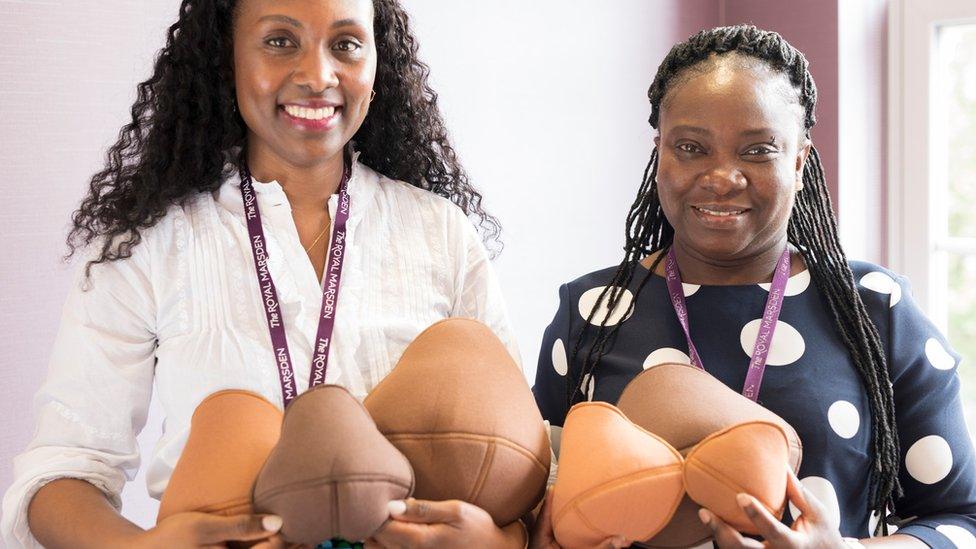Breast cancer 'a stigma nobody talks about'
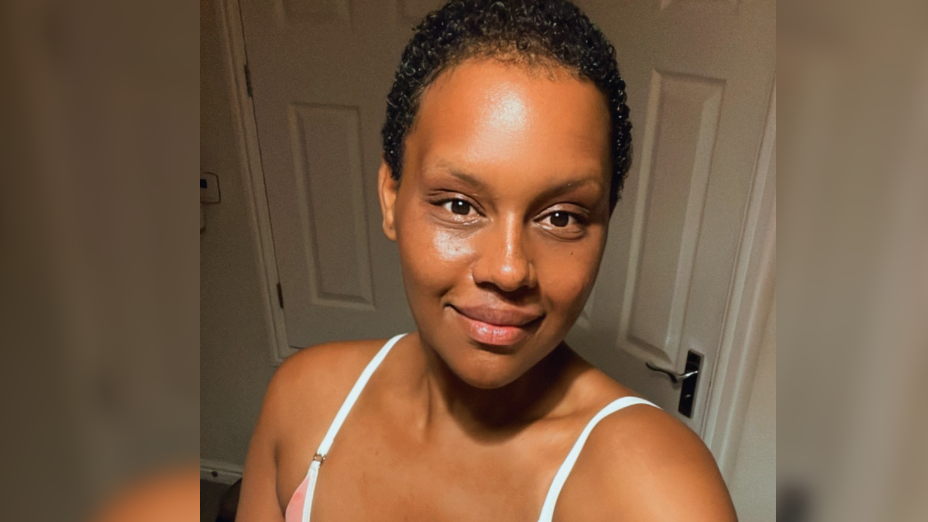
Rhakima Khan said she found that there were no support groups for black women with breast cancer
- Published
Black women are being let down by medical staff and their own community when it comes to cancer care, according to a woman from Bristol.
Rhakima Khan, 36, was diagnosed with breast cancer at the age of 34.
She will be speaking as part of a panel discussion at Bristol Beacon on 29 July, looking at the health inequalities and stigma faced by black women with cancer.
Ms Khan credits her knowledge as a medical professional as the reason she spotted signs of potential breast cancer.
'I stood my ground'
"When I found my lump initially I knew that wasn't normal for me because it wasn't there before," she said.
She said she went to her GP but was told it was not breast cancer because of her age - 34.
The GP suggested that the lump was potentially a result of a loop recorder she had fitted near the region to monitor her heartbeat, Ms Khan added..
"I spoke to one of the vascular consultants at work and asked 'is this normal?' And he immediately said no.
"So I went back to the GP and I insisted she referred me.
"I'm happy I advocated for myself and I stood my ground because it turned out that I had stage three invasive breast cancer."
'You can be ostracised'
Ms Khan said getting a diagnosis was not her only struggle.
"Within our community, when you are talking from personal experience and also from just seeing growing up as a child, when you're diagnosed with cancer, it's almost as if you're ostracised by your own community.
"Someone did message me on Instagram and said that I shouldn't be airing my private business on social media.
"I've had my friends that have distanced themselves from me.
"No one truly understands what it's like to be black and have cancer, apart from someone else who's black and having cancer because it's a lot to deal with a lot of generational stigmas."
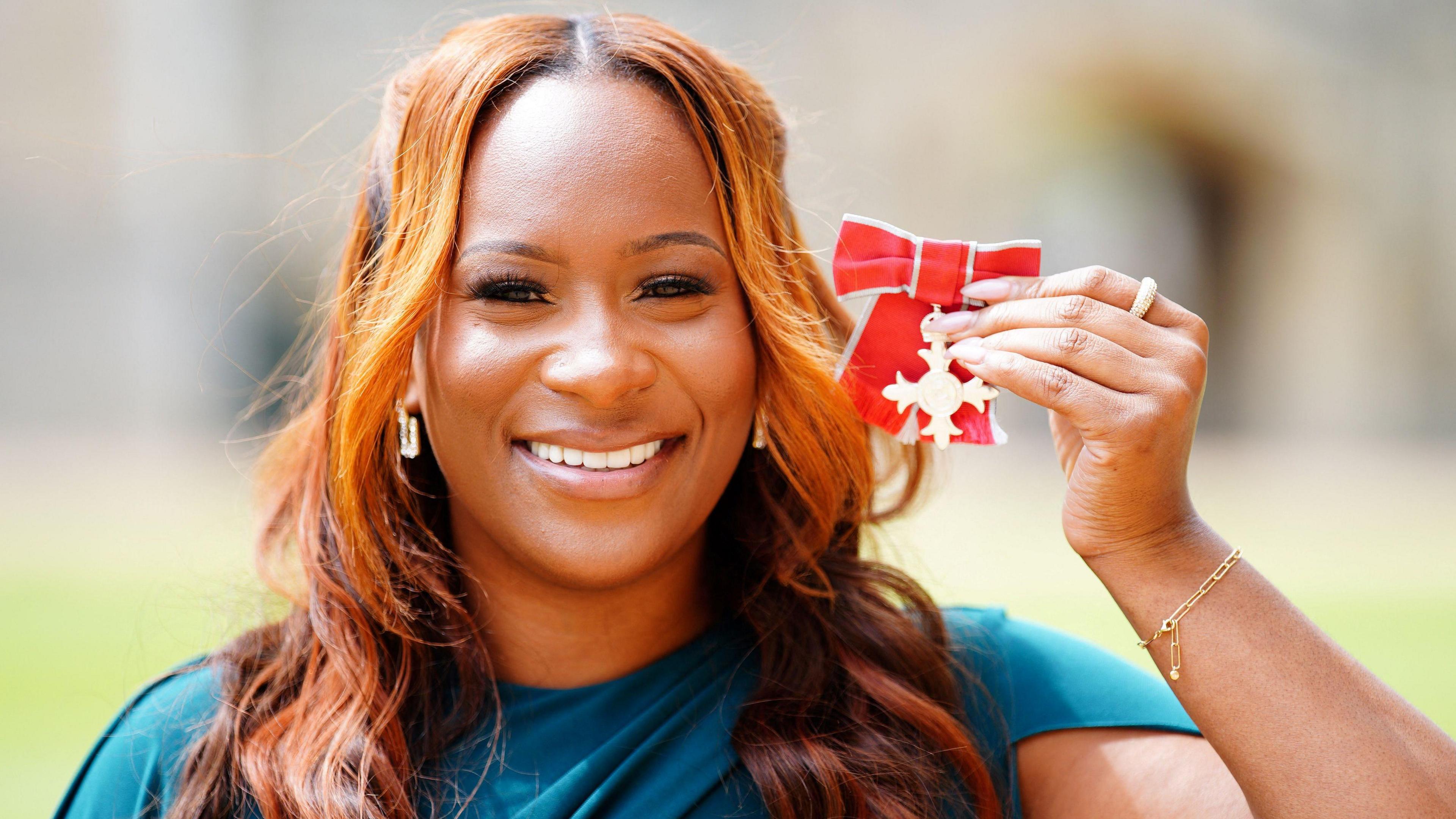
Leanne Pero was awarded an MBE in 2023
Leanne Pero, CEO of Black Women Rising, said the issues faced by black women with cancer are "twofold".
"On one hand, black women are being inappropriately discriminated when it comes to healthcare. Women are being dismissed when they're going with symptoms," she said.
"We have the data to prove that black women are being diagnosed with later stage cancers than our white counterparts.
"But on the flip side, when people are being diagnosed, what's happening within their communities is a lot of really unhelpful myths and taboos.
"[People are told] stuff like black people don't usually get cancer, God wouldn't want you to take the drugs (medicine), you've got cancer because your faith isn't strong enough."
The free event at Bristol Beacon on 29 July will begin at 19.00 BST with the screening of the play 'Unseen Unheard', which explores these issues.
She hopes the play can help reach ethnic minority audiences who are not always receptive to leaflets or letters from the NHS inviting them to cancer screenings
"When it comes to people of colour, we're known to be lovers of music, drama, acting, singing. And it really is a way that people for generations before us told our stories."
Follow BBC Bristol on Facebook, external, X, external and Instagram, external. Send your story ideas to us on email or via WhatsApp on 0800 313 4630.
Related topics
- Published26 July 2024
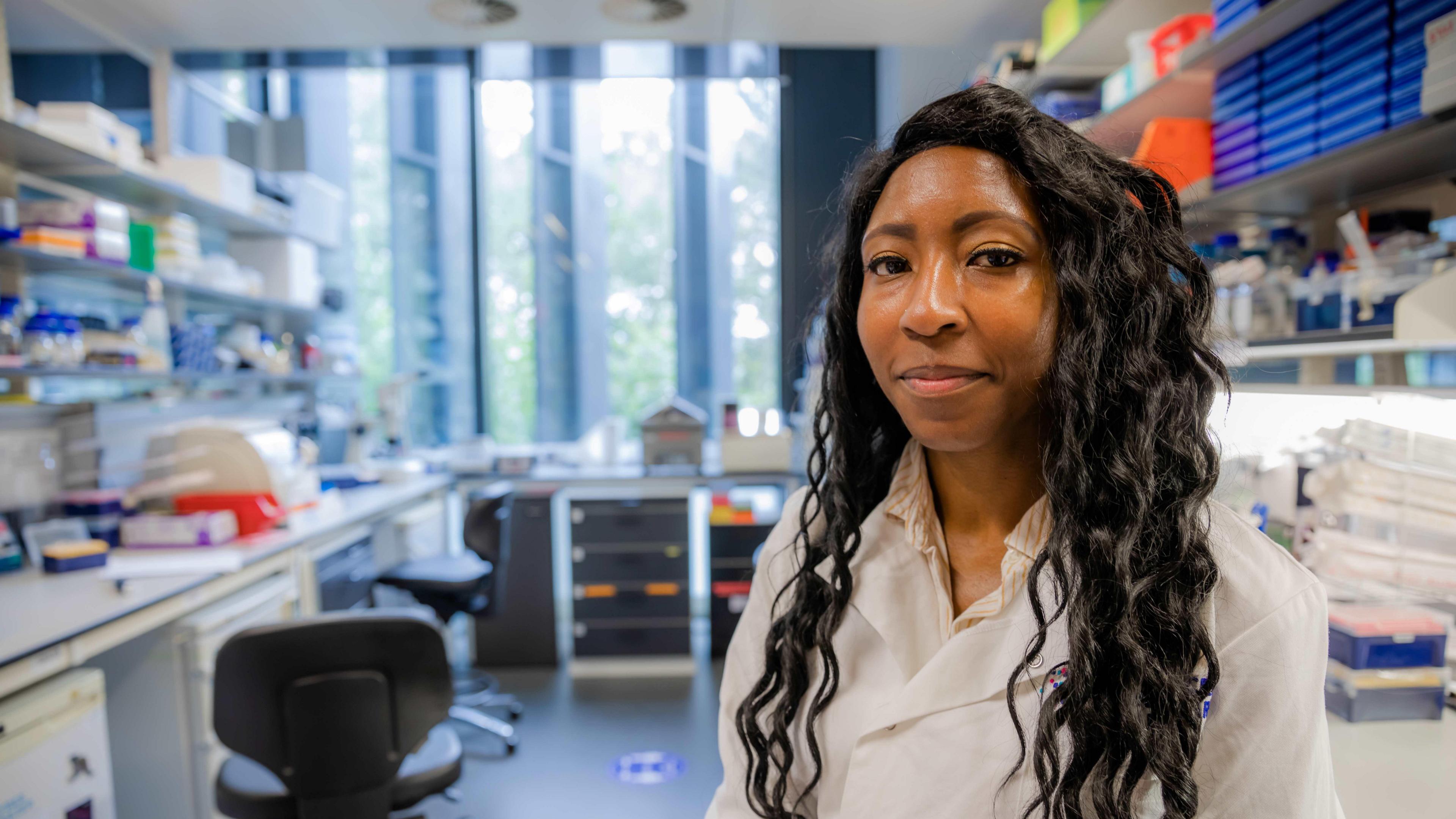
- Published26 October 2022
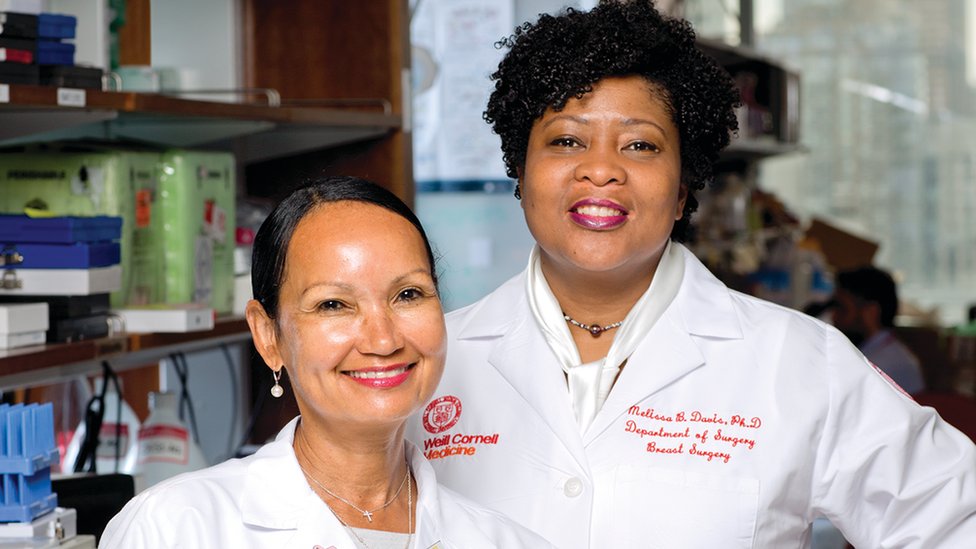
- Published3 October 2022
